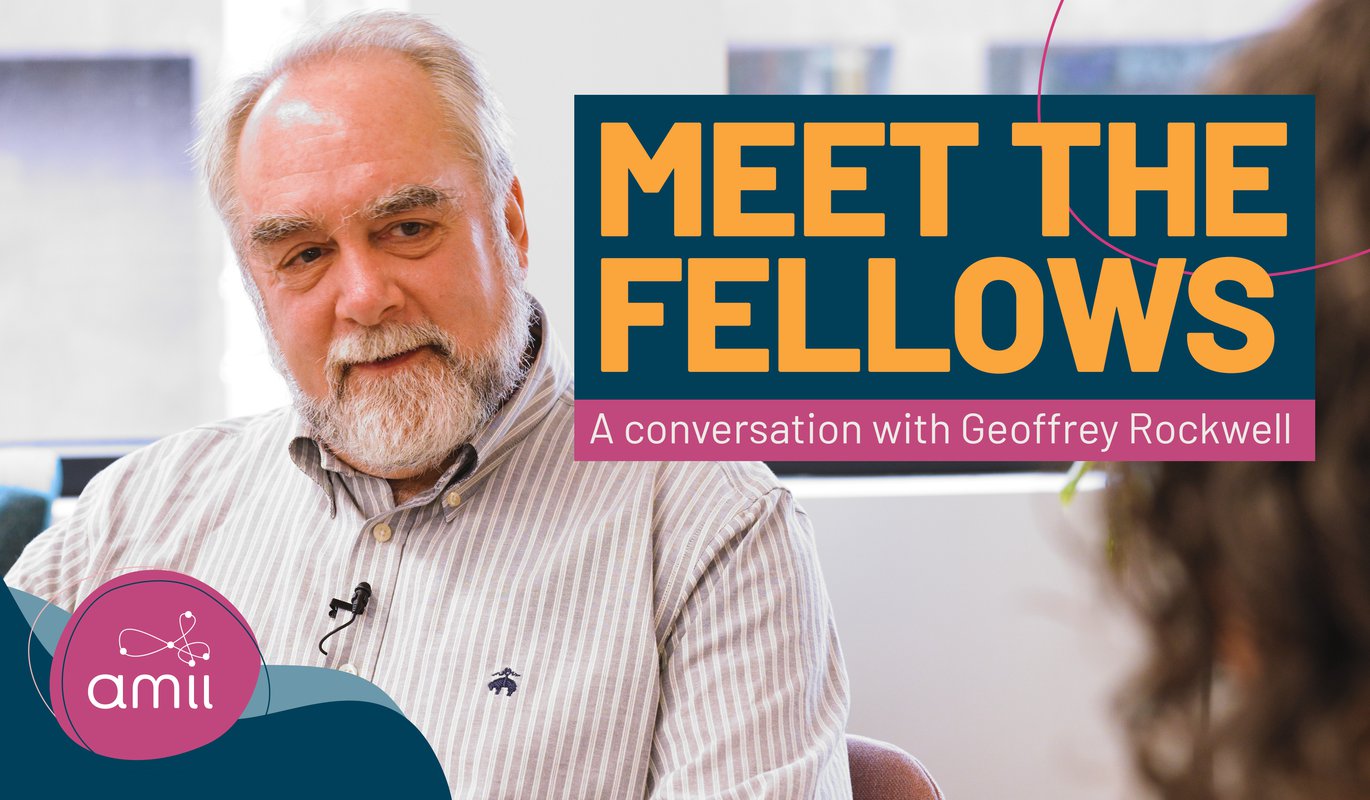Learn more about the research and work of Geoffrey Rockwell, one of the latest Fellows to join Amii’s team of world-class researchers. Geoffrey is a professor in both Media Tech Studies and in the philosophy department at the University of Alberta.
The Alberta Machine Intelligence Institute (Amii) has put up a video interview with me and Alona Fyshe designed to introduce new Fellows (like me.) Dr. Fyshe is one of the Fellows who works on machine learning and natural language processing. The interview is at Meet the Fellows: Geoffrey Rockwell.

